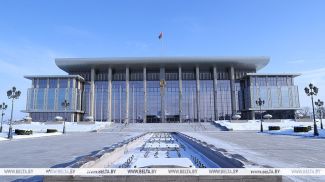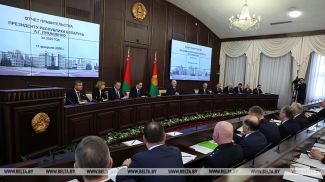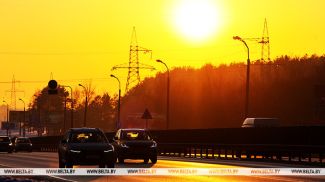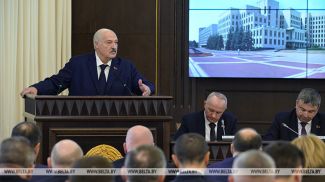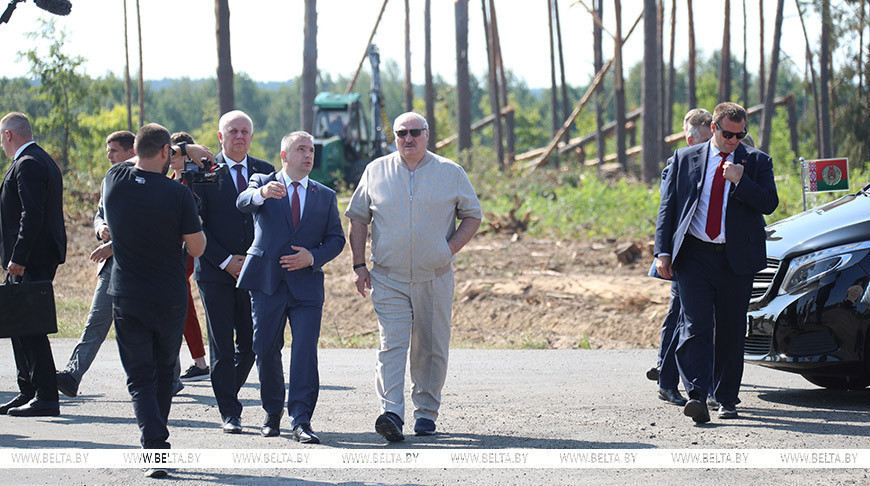
MOZYR DISTRICT, 2 August (BelTA) – During a working trip to Mozyr District on 2 August Belarusian President Aleksandr Lukashenko set a task to provide necessary assistance to the people in the storm-hit areas, BelTA has learned.
“We need to look at the situation on the ground. People should get all necessary help they may need,” the Belarusian leader emphasized.
The president instructed to check everything with the provision and allocation of timber, slate, and other construction materials necessary for rebuilding works. The head of state received some information on this matter and asked the responsible officials to report him back.
Aleksandr Lukashenko instructed to thoroughly examine each case and provide the necessary amount of construction materials. “You know what the warehouse stocks are. Brigades are working there (in the storm-affected areas). They should not sit idle due to a lack of rafters, battens or slate,” he said.
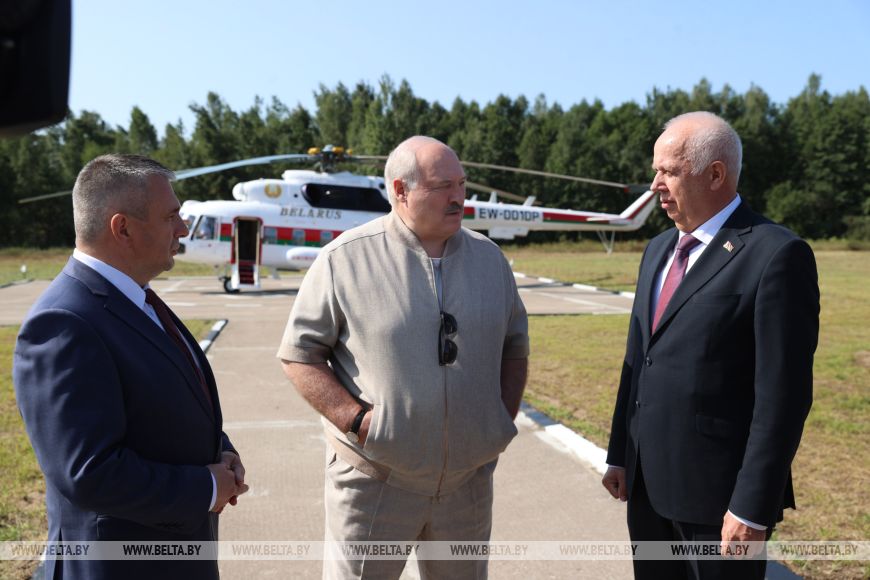 Gomel Oblast Governor Ivan Krupko assured the president that there was
not a single day of downtime, with the works carried out on a tight
schedule.
Gomel Oblast Governor Ivan Krupko assured the president that there was
not a single day of downtime, with the works carried out on a tight
schedule.
“You two [together with the State Control Committee] should take a reality check. Is it a problem to talk to people? Not just to report on the lack of slate or battens. We just need to take a good look at the situation,” the president instructed.
Hearing the words of gratitude from the governor, Aleksandr Lukashenko interrupted him by responding: “There is no need to thank. The main thing if people will express gratitude.”
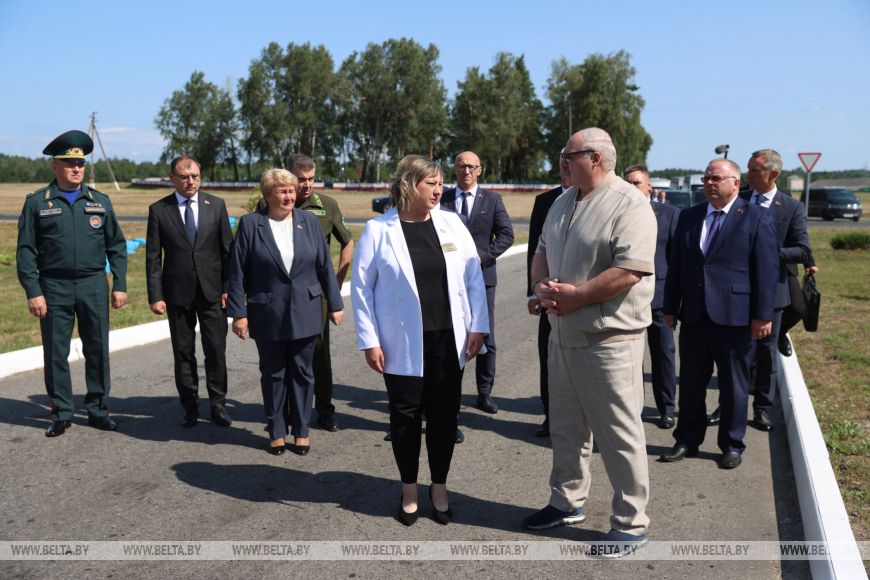
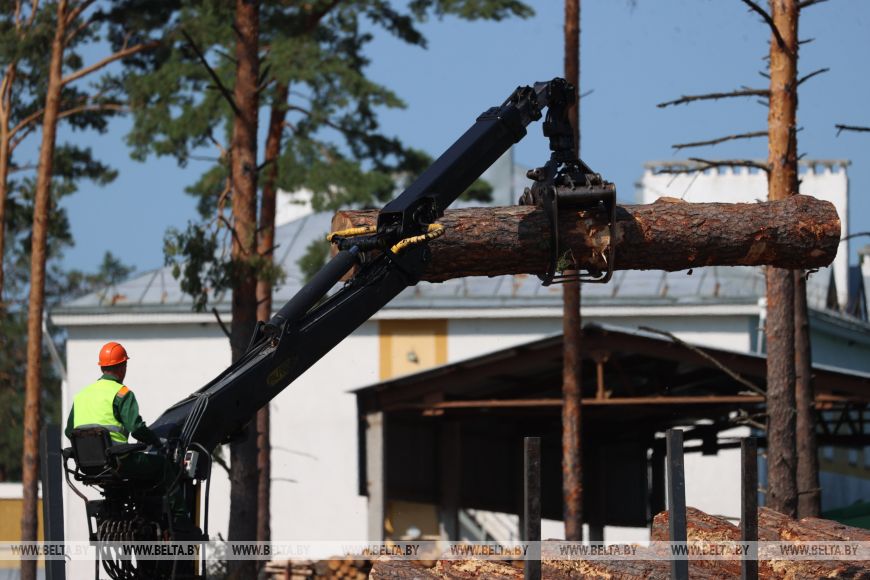
“You must do it, whatever it takes. Everything will be checked. There is no place for idle talk. No lies. You will answer if you lie,” the Belarusian leader warned.
As for the energy sector, the president was informed that all villages had been reconnected through permanent power lines without the need for power generators. “It is good if all villages and households are connected to electricity. The main thing today is to provide all households with electricity,” he said.
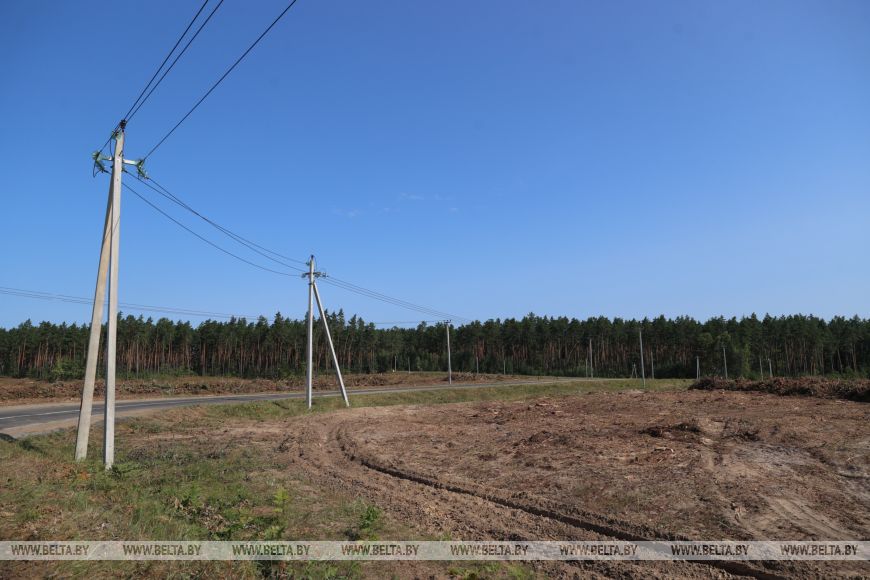
Aleksandr Lukashenko also stressed the need to replace all old power lines. “Everything that has broken down or got old need to be replaced with new ones,” the head of state said.
The storms in mid-July damaged not only villages and infrastructure, but also cemeteries. “Cemeteries should be put in order,” Aleksandr Lukashenko said.
Of course, the task is not the first priority but it should be fulfilled. Cleaning up works, removing fallen trees, restoring monuments - all this should be done in cooperation with residents.
The head of state also focused on the processing of damaged and fallen forests and gave an instruction to launch reforestation works. Individuals, labor collectives, and students should also be involved in this effort. “We should complete reforestation operations next year. We should make plans and schedules during the winter. This is the only way we can salvage these empty patches,” Aleksandr Lukashenko said.
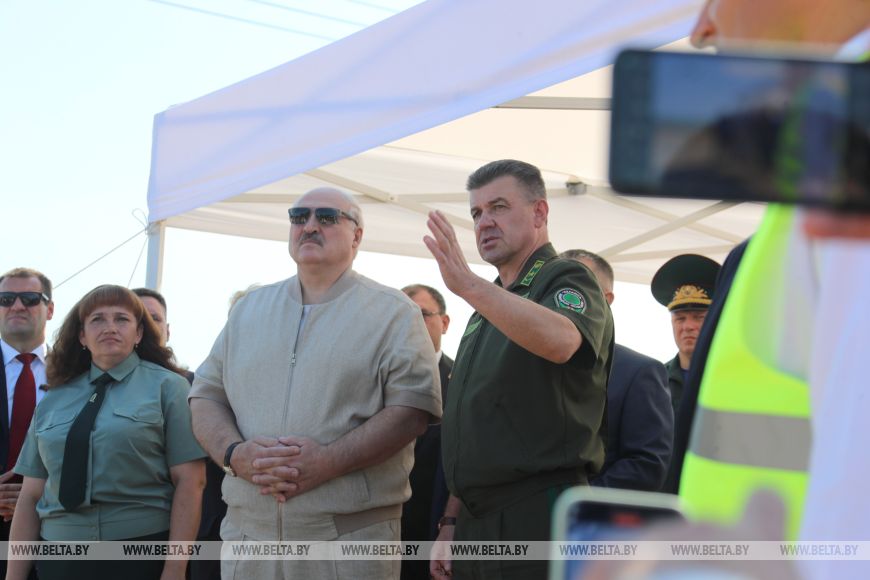
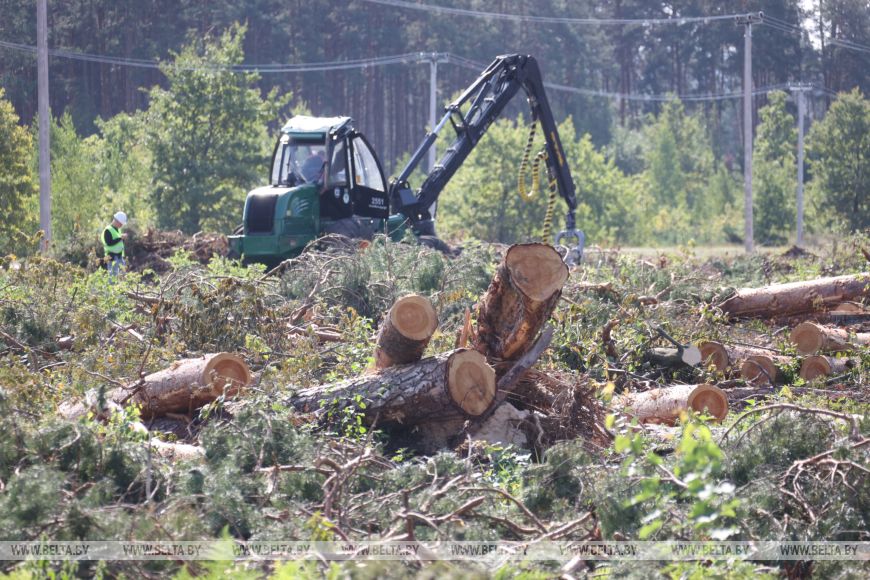
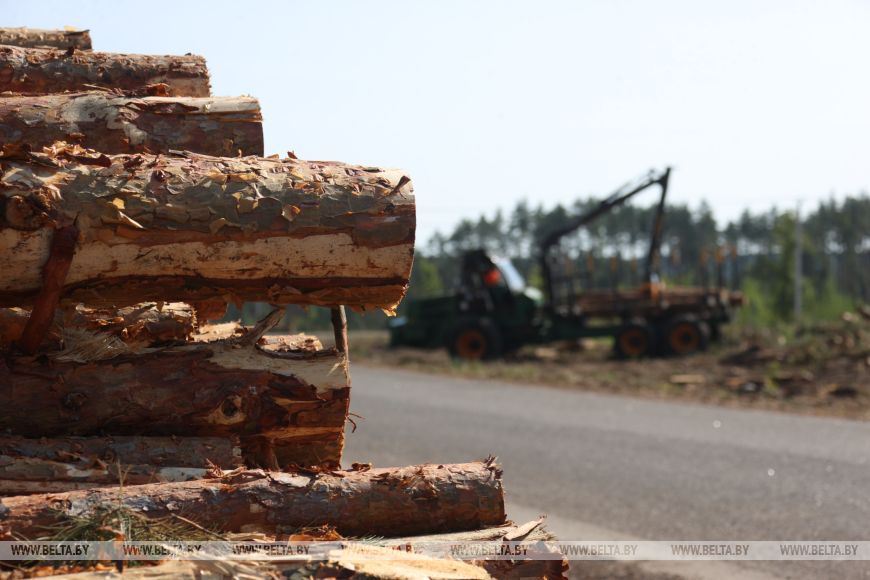
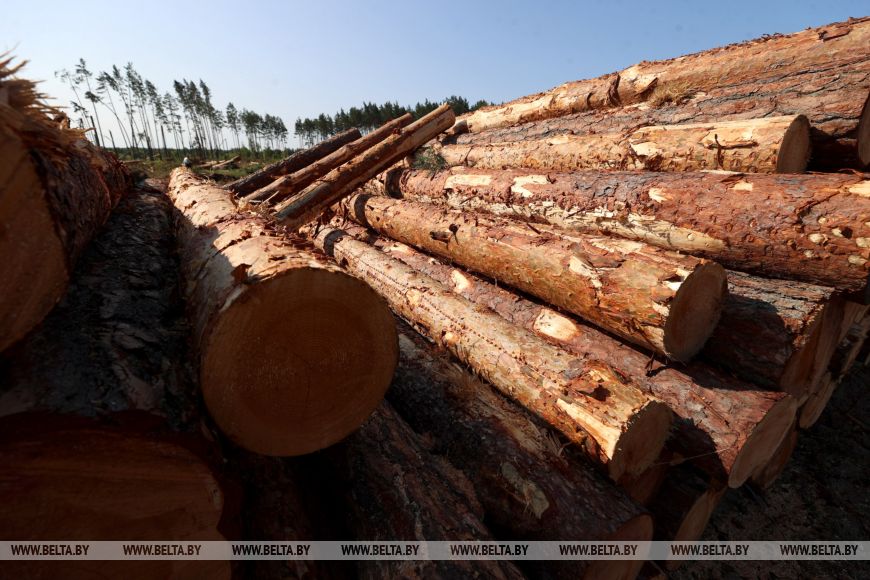
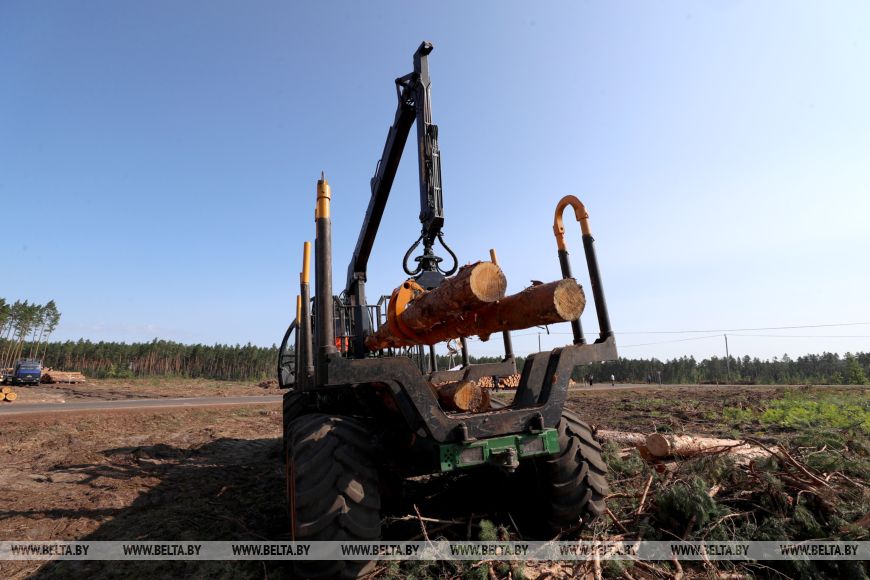

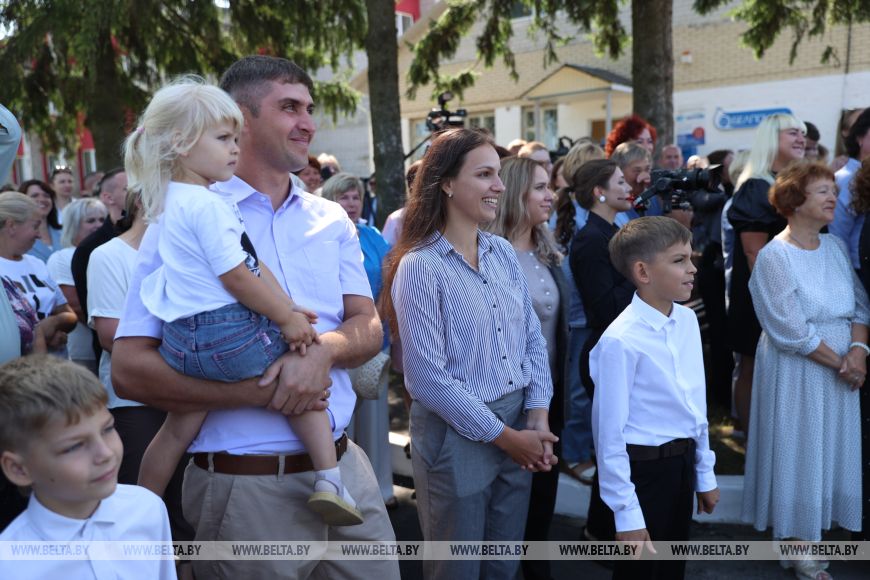
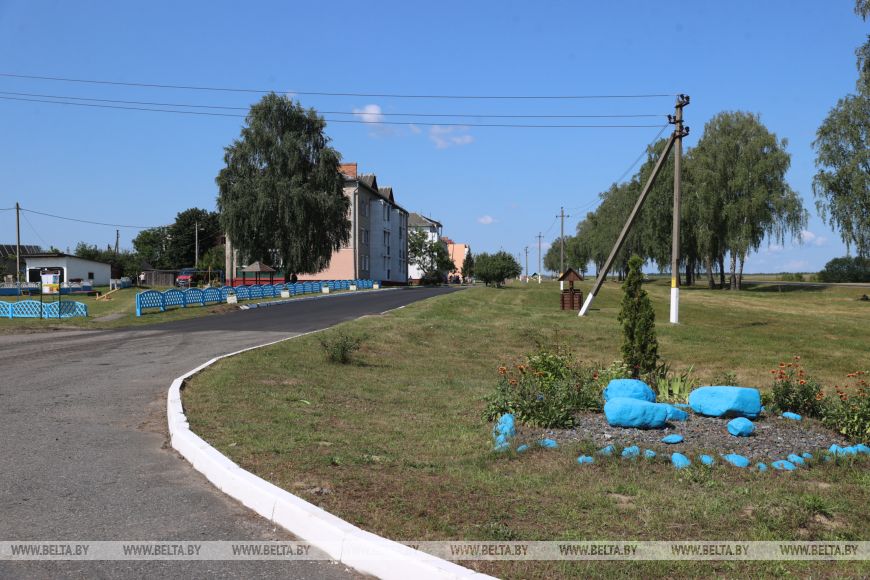
“We need to look at the situation on the ground. People should get all necessary help they may need,” the Belarusian leader emphasized.
The president instructed to check everything with the provision and allocation of timber, slate, and other construction materials necessary for rebuilding works. The head of state received some information on this matter and asked the responsible officials to report him back.
Aleksandr Lukashenko instructed to thoroughly examine each case and provide the necessary amount of construction materials. “You know what the warehouse stocks are. Brigades are working there (in the storm-affected areas). They should not sit idle due to a lack of rafters, battens or slate,” he said.
 Gomel Oblast Governor Ivan Krupko assured the president that there was
not a single day of downtime, with the works carried out on a tight
schedule.
Gomel Oblast Governor Ivan Krupko assured the president that there was
not a single day of downtime, with the works carried out on a tight
schedule.“You two [together with the State Control Committee] should take a reality check. Is it a problem to talk to people? Not just to report on the lack of slate or battens. We just need to take a good look at the situation,” the president instructed.
Hearing the words of gratitude from the governor, Aleksandr Lukashenko interrupted him by responding: “There is no need to thank. The main thing if people will express gratitude.”


The head of state was briefed on the
progress of reconstruction work in the oblast, including social
facilities. “When the works are over, everything should be checked.
Those responsible for mismanagement will be held accountable. If they
need something, they should get it, but only after all the checks are
over,” the Belarusian leader said.
“You must do it, whatever it takes. Everything will be checked. There is no place for idle talk. No lies. You will answer if you lie,” the Belarusian leader warned.
As for the energy sector, the president was informed that all villages had been reconnected through permanent power lines without the need for power generators. “It is good if all villages and households are connected to electricity. The main thing today is to provide all households with electricity,” he said.

Aleksandr Lukashenko also stressed the need to replace all old power lines. “Everything that has broken down or got old need to be replaced with new ones,” the head of state said.
The storms in mid-July damaged not only villages and infrastructure, but also cemeteries. “Cemeteries should be put in order,” Aleksandr Lukashenko said.
Of course, the task is not the first priority but it should be fulfilled. Cleaning up works, removing fallen trees, restoring monuments - all this should be done in cooperation with residents.
The head of state also focused on the processing of damaged and fallen forests and gave an instruction to launch reforestation works. Individuals, labor collectives, and students should also be involved in this effort. “We should complete reforestation operations next year. We should make plans and schedules during the winter. This is the only way we can salvage these empty patches,” Aleksandr Lukashenko said.






After the president heard
out the officials' reports and got familiar with the progress of work,
he had a warm conversation with the residents of the agro-town of Prudok
in Mozyr District.
“What questions would you like to ask me?” the president asked.
He was told that there were none, and that all major issues were being promptly resolved.
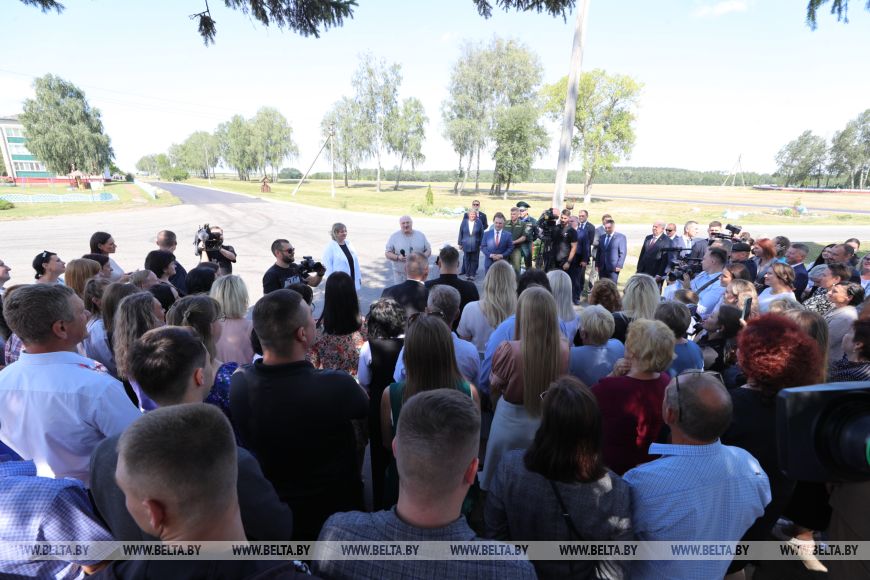
“What questions would you like to ask me?” the president asked.
He was told that there were none, and that all major issues were being promptly resolved.


The
14 July thunderstorm left hundreds of communities across the country
without electricity and water. Gomel Oblast suffered the most
A total of 46 high-voltage lines in the region were damaged, 5813 transformer substations and 52 boiler houses were disconnected. As a result, 1175 villages were cut off, and five districts were left without power. The storm also damaged more than 30,000 hectares of forests, which is more than 3.8 million cubic meters of timber.
An emergency situation was declared in Gomel Oblast the same evening and an operational headquarters was set up to eliminate the consequences of the bad weather. Mozyr District suffered the most from the disaster, and emergency teams from neighboring, less affected districts were sent there to help.
The head of state took personal control over the progress of restoration work in the country. Deputy Prime Minister Anatoly Sivak, the governors of Mogilev Oblast, Minsk Oblast and Gomel Oblast reported to the president on a daily basis. Special attention was paid to Gomel Oblast, which suffered the most from the disaster.
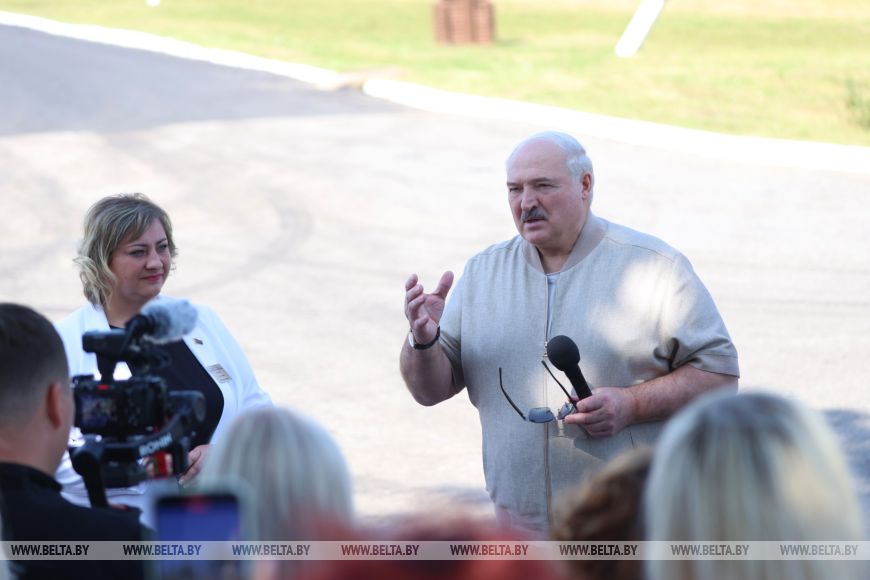
Power engineers, forestry and other specialists were fully engaged in the works. The major emergency works were completed within the next 24 hours. However, the elimination of the consequences of the storms will continue for many more months.
A total of 46 high-voltage lines in the region were damaged, 5813 transformer substations and 52 boiler houses were disconnected. As a result, 1175 villages were cut off, and five districts were left without power. The storm also damaged more than 30,000 hectares of forests, which is more than 3.8 million cubic meters of timber.
An emergency situation was declared in Gomel Oblast the same evening and an operational headquarters was set up to eliminate the consequences of the bad weather. Mozyr District suffered the most from the disaster, and emergency teams from neighboring, less affected districts were sent there to help.
The head of state took personal control over the progress of restoration work in the country. Deputy Prime Minister Anatoly Sivak, the governors of Mogilev Oblast, Minsk Oblast and Gomel Oblast reported to the president on a daily basis. Special attention was paid to Gomel Oblast, which suffered the most from the disaster.

Power engineers, forestry and other specialists were fully engaged in the works. The major emergency works were completed within the next 24 hours. However, the elimination of the consequences of the storms will continue for many more months.





